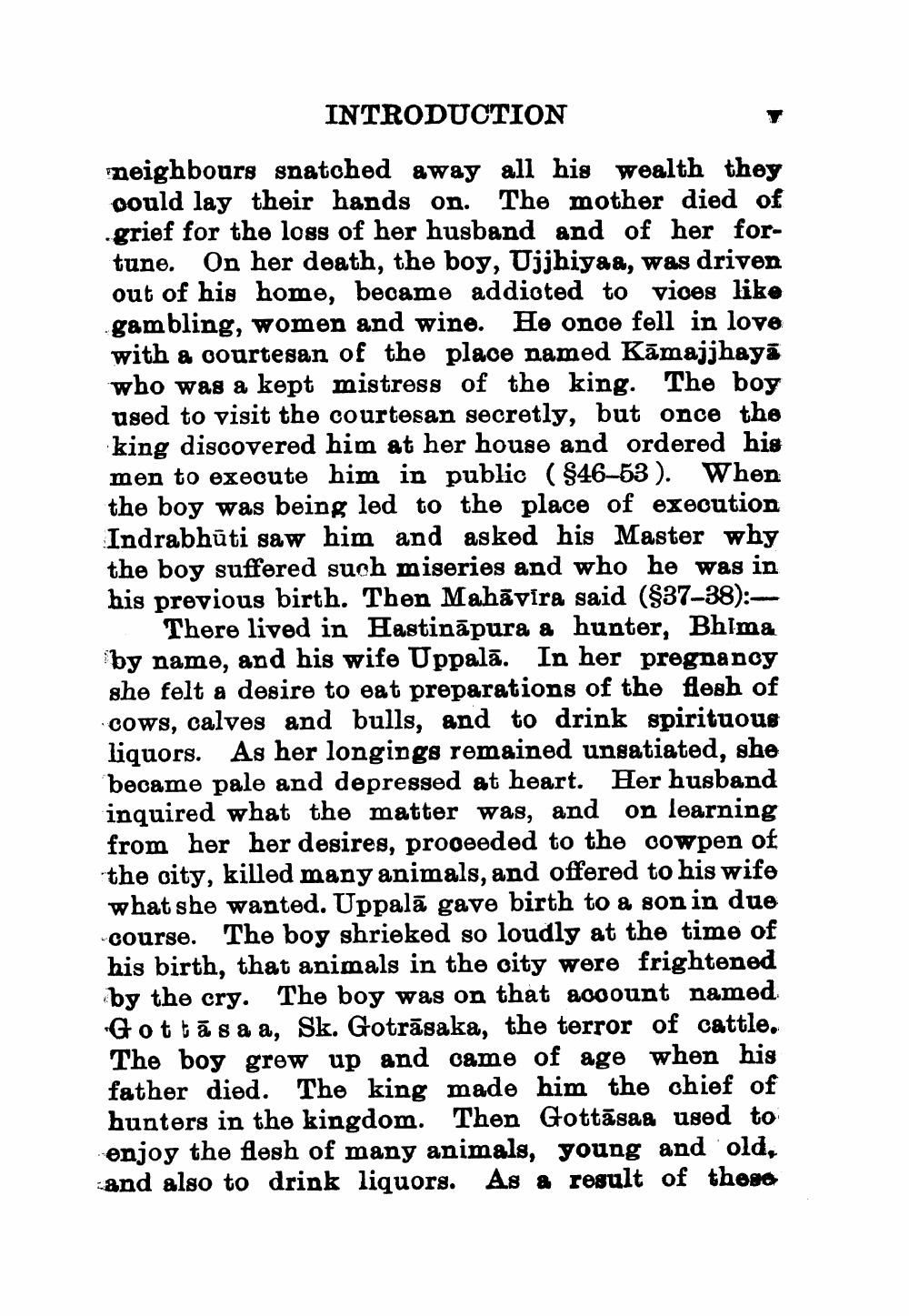________________
INTRODUCTION
neighbours snatched away all his wealth they pould lay their hands on. The mother died of grief for the loss of her husband and of her fortune. On her death, the boy, Ujjhiyaa, was driven out of his home, became addioted to vices like gambling, women and wine. He once fell in love with a courtesan of the place named Kāmajjhayā who was a kept mistress of the king. The boy used to visit the courtesan secretly, but once the king discovered him at her house and ordered his men to execute him in public ( $46–53). When the boy was being led to the place of execution Indrabhūti saw him and asked his Master why the boy suffered such miseries and who he was in his previous birth. Then Mahāvira said (837-38):
There lived in Hastināpura a hunter, Bhima by name, and his wife Uppalā. In her pregnancy she felt a desire to eat preparations of the flesh of cows, calves and bulls, and to drink spirituous liquors. As her longings remained unsatiated, she became pale and depressed at heart. Her husband inquired what the matter was, and on learning from her her desires, proceeded to the cowpen of the oity, killed many animals, and offered to his wife what she wanted. Uppalā gave birth to a son in due course. The boy shrieked so loudly at the time of his birth, that animals in the city were frightened by the cry. The boy was on that acoount named Got tā sa a, Sk. Gotrāsaka, the terror of cattle. The boy grow up and came of age when his father died. The king made him the chief of hunters in the kingdom. Then Gottāsas used to enjoy the flesh of many animals, young and old, and also to drink liquors. As a result of these




